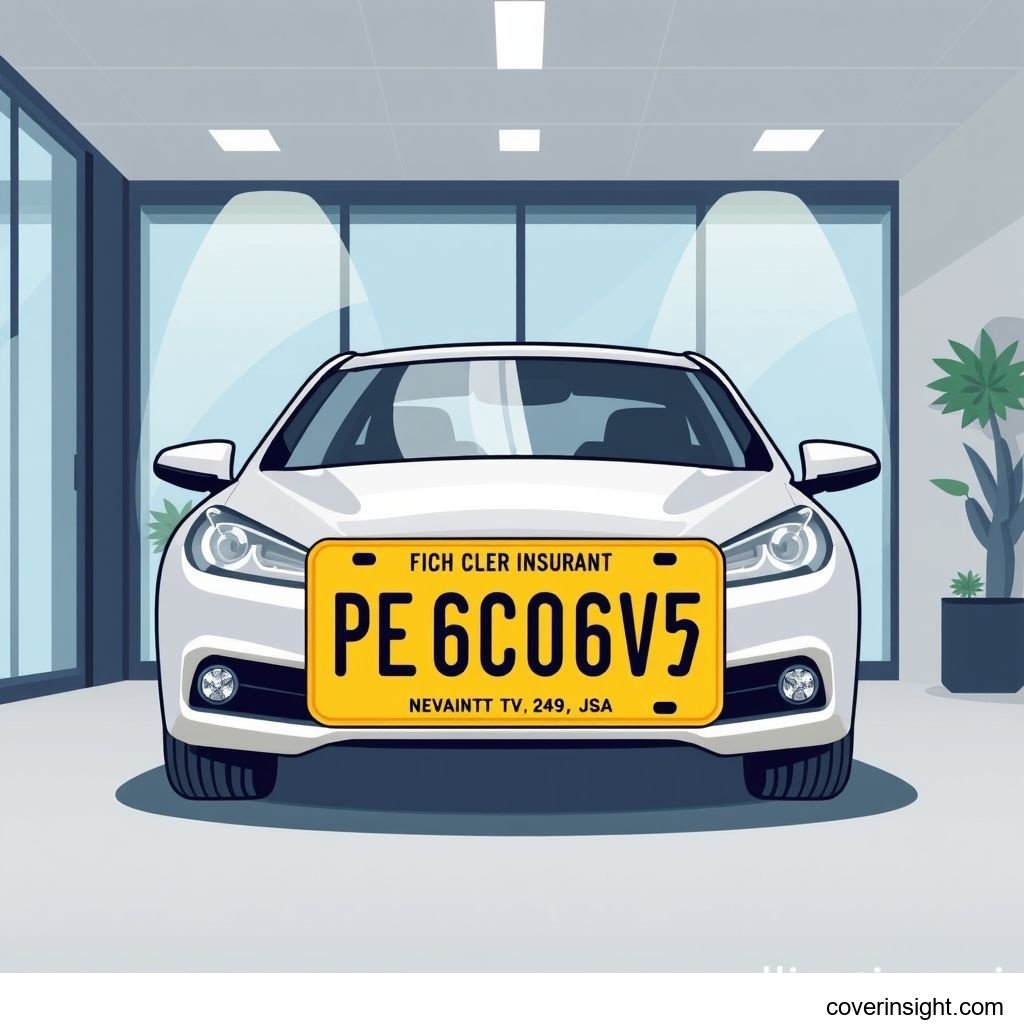Introduction
In the dynamic landscape of US auto insurance, selecting the right provider for 2025 is a crucial decision that can impact both your finances and peace of mind. Progressive, a long-standing titan in the industry, has cemented its reputation for innovative pricing models and a wide array of coverage options. Known for its extensive reach and competitive advertising, Progressive consistently ranks among the top insurers by market share in the United States. Its commitment to offering diverse products, from personal auto to business solutions, makes it a household name. However, emerging digital-first insurers like Clearcover are shaking things up, promising a streamlined, technology-driven experience. This comparison aims to delve into what each company brings to the table, helping you navigate their offerings to make an informed choice for the year ahead.
Coverage Details
Choosing an auto insurance policy isn't just about the price tag; it's fundamentally about understanding what protection you're actually getting. Both Progressive and Clearcover offer comprehensive coverage options, but their approaches and specific features can differ.
What’s Included
Progressive provides a full spectrum of auto insurance coverages typically expected from a major insurer. This includes standard liability (bodily injury and property damage), collision, and comprehensive coverage. Beyond the basics, Progressive offers an impressive suite of add-ons such as:
-
Roadside Assistance: For those unexpected breakdowns.
-
Rental Car Reimbursement: Covers the cost of a rental car while yours is being repaired after a covered claim.
-
Gap Insurance: Pays the difference between your car's actual cash value and what you still owe on your loan if your car is totaled.
-
Custom Parts and Equipment Coverage: Essential for drivers who've modified their vehicles.
-
Pet Injury Coverage: A unique offering that covers vet bills if your pet is injured in a car accident.
-
Deductible Savings Bank: Rewards safe driving with a decreasing deductible.
Clearcover, while also offering core coverages like liability, collision, and comprehensive, prides itself on a tech-forward, simplified approach. Their offerings are designed for the modern, mobile-savvy user. Key features include:
-
Digital-First Experience: Managing policies, filing claims, and accessing ID cards all through a user-friendly mobile app.
-
Rental Car Reimbursement: Similar to Progressive, covering rental costs.
-
Roadside Assistance: Available for quick help on the road.
-
Ride-Share Gap Coverage: A specialized add-on for ride-share drivers, covering the gap in personal policy coverage when engaged in ride-share activities. This highlights their focus on contemporary driving needs.
Common Exclusions
While both insurers offer robust protection, it's equally important to be aware of what typically isn't covered. Common exclusions for both Progressive and Clearcover, consistent with the industry standard, often include:
-
Intentional Damage: Damage caused by deliberate acts.
-
Wear and Tear: Routine maintenance issues or damage from gradual deterioration.
-
Damage from Racing or Illegal Activities: Accidents that occur during illicit activities or competitive driving.
-
Theft of Personal Belongings: Your car insurance typically covers the car itself, not personal items stolen from within it (this usually falls under homeowners or renters insurance).
-
Damage from War or Nuclear Events: Catastrophic events of this nature are generally excluded.
-
Using Your Personal Vehicle for Commercial Purposes (without proper endorsement): If you use your car for business, you might need a specific commercial auto policy or endorsement. For instance, while Clearcover offers ride-share gap, general commercial use without proper coverage would likely be excluded. It's important to differentiate this from specific coverages. For businesses, Progressive offers extensive solutions, as seen in guides like "Essential Contractor Insurance: Progressive & Texas 2025" and "Texas Contractor Insurance: BOP & Progressive Guide 2025," illustrating the need for specialized commercial policies.
Cost Analysis
Understanding the cost of auto insurance involves more than just a single quoted price; it's a complex calculation influenced by numerous variables and opportunities for savings.
Price Factors
Both Progressive and Clearcover, like all insurers, use a multitude of factors to determine your premiums. These include:
-
Driving Record: A clean record with no accidents or violations generally leads to lower rates. According to data from the National Association of Insurance Commissioners (NAIC), claims history is one of the most significant predictors of future risk.
-
Vehicle Type: The make, model, year, safety features, and even the color of your car can impact your premium. Newer, safer cars often get discounts, while high-performance or luxury vehicles may cost more to insure.
-
Location: Where you live and primarily drive your vehicle plays a significant role. Urban areas with higher traffic density and crime rates often have higher premiums than rural areas. For example, drivers in areas of Texas with high rates of uninsured motorists might see slightly higher premiums than those in very safe, low-traffic areas.
-
Age and Gender: Younger, less experienced drivers typically face higher rates. While gender used to be a more significant factor, many states have restricted its use.
-
Credit Score: In many states, your credit-based insurance score is a major factor. Insurers use this to predict the likelihood of future claims.
-
Coverage Limits and Deductibles: Choosing higher liability limits or lower deductibles will increase your premium.
-
Usage: How much you drive annually (your mileage) can also be a factor.
A real-world example of how these factors play out is evident in how Progressive leverages its Snapshot program. A driver in Dallas, Texas, with a clean record but a habit of hard braking might see a higher initial quote. However, after using Snapshot for a few months, demonstrating safe driving habits and low mileage, they could qualify for a significant discount, often surprising them with how much their rates can drop, sometimes by 15-20%. This illustrates how individual behavior, tracked by telematics, directly impacts pricing.
Saving Tips
Both Progressive and Clearcover offer various ways to save on your auto insurance. Progressive:
-
Bundling Discounts: Combine auto with other policies like home or renters insurance.
-
Multi-Car Discount: Insure multiple vehicles on one policy.
-
Snapshot Program: Progressive's telematics program that tracks driving habits to offer personalized discounts based on how safely you drive.
-
Good Student Discount: For eligible students maintaining a certain GPA.
-
Paperless and Sign Online Discounts: Simple ways to save by opting for digital communications.
-
Deductible Options: Choosing a higher deductible can lower your premium.
-
Safety Features Discount: For vehicles with anti-lock brakes, airbags, etc.
-
Loyalty Discounts: For long-term customers.
Clearcover:
-
App-Based Discounts: While not explicitly listed as "discounts," the app-first model is designed to be efficient and potentially translate to lower overhead costs passed on to consumers.
-
Safe Driving Incentives: Clearcover may offer personalized rates based on driving data, similar to telematics programs.
-
Referral Program: Refer friends and earn rewards.
-
Paperless and Autopay Discounts: Common ways to save through administrative efficiency.
-
Usage-Based Insurance: As a tech-forward company, their pricing models are often optimized for efficient risk assessment, which can lead to competitive rates for good drivers.
When exploring your options, it's always advisable to compare quotes and consider the full suite of discounts. Just as you might review options on government portals like Healthcare.gov for health coverage, exploring all available resources and discounts for auto insurance through your local State Insurance Departments websites can yield significant savings.
FAQs
How much does Progressive cost? The cost of Progressive auto insurance varies widely depending on numerous factors, including your location, driving history, vehicle type, age, and chosen coverage limits. A national average for full coverage could range from $150-$250 per month, but this is a rough estimate. For a precise quote, it’s best to get a personalized quote directly from Progressive.
What affects premiums? Premiums are influenced by your driving record (accidents, violations), the type of vehicle you drive, your location (urban vs. rural), your age and gender, credit-based insurance score (in most states), the amount of coverage you choose, and any discounts you qualify for. Insurers also consider external factors like regional claim frequency and repair costs.
Is it mandatory? Yes, auto insurance is mandatory in almost every U.S. state. Minimum liability coverage is required by law to financially protect you in case you cause an accident. The specific minimum requirements vary by state.
How to choose? Choosing between Progressive and Clearcover, or any insurer, depends on your priorities. If you value a wide range of coverage options, extensive discounts, and the flexibility of traditional and digital interactions, Progressive might be a better fit. If you're a tech-savvy driver who prefers a streamlined, app-based experience, potentially lower rates, and minimal fuss, Clearcover could be ideal. Compare quotes, read reviews, assess their claims process, and consider which company best aligns with your driving habits and preferred interaction style.
Consequences of no coverage? Driving without mandatory auto insurance can lead to severe consequences, including fines, license suspension, vehicle impoundment, and even jail time in some states. If you cause an accident while uninsured, you could be held personally liable for all damages and medical expenses, which can amount to hundreds of thousands of dollars, potentially leading to financial ruin.
Author Insight & Experience
Based on my experience living in the US and having navigated the auto insurance landscape for years, the shift towards personalized pricing and digital platforms is palpable. What often seems like a slight difference in premiums on paper can translate into significant savings or headaches depending on how a company handles claims or offers customer service. Progressive, with its established presence, often offers a reassuring stability and breadth of options that can be comforting, especially when you need to bundle policies or have unique coverage needs. On the flip side, Clearcover’s agility and focus on technology genuinely streamline the process for those who are comfortable doing everything from their phone. As someone who appreciates efficiency, I've observed that these newer companies can offer a surprisingly smooth experience, especially for routine interactions. The real test, however, always comes during a claim, and while both aim for efficiency, the established infrastructure of a giant like Progressive often means more hands-on support is available if you prefer it. Ultimately, the "best" insurer truly is a personal fit, much like finding the right pair of shoes – it needs to feel just right for you.








Comments